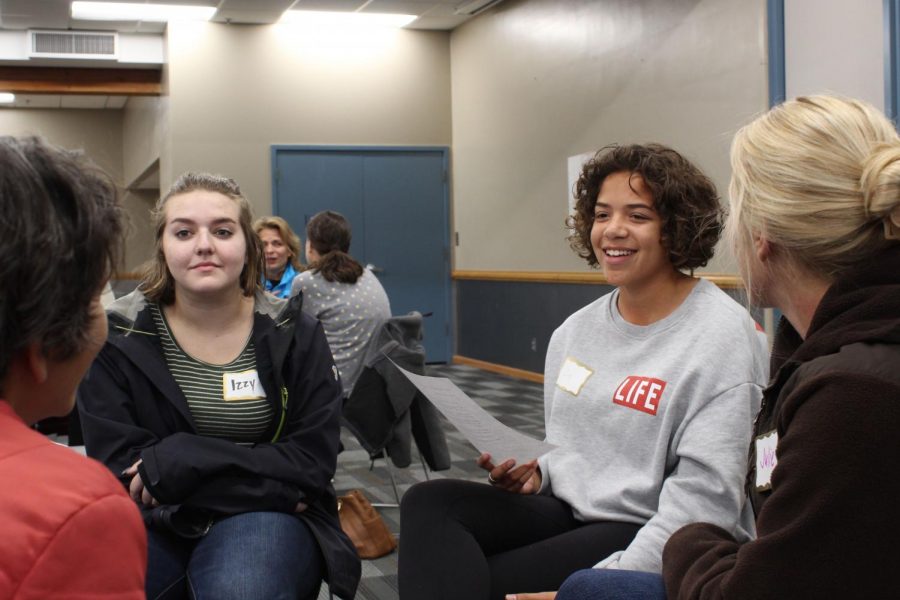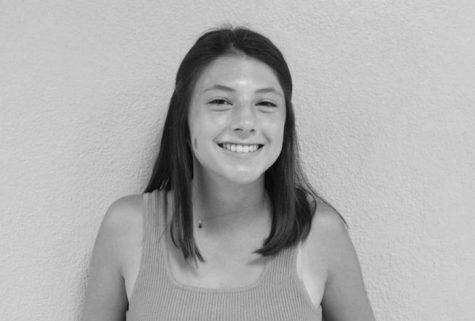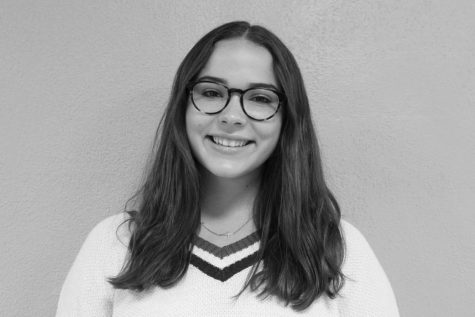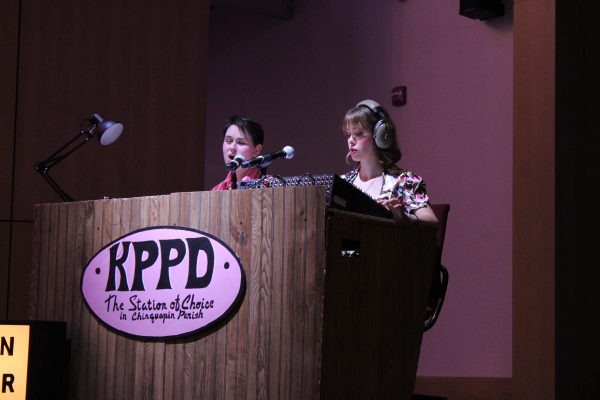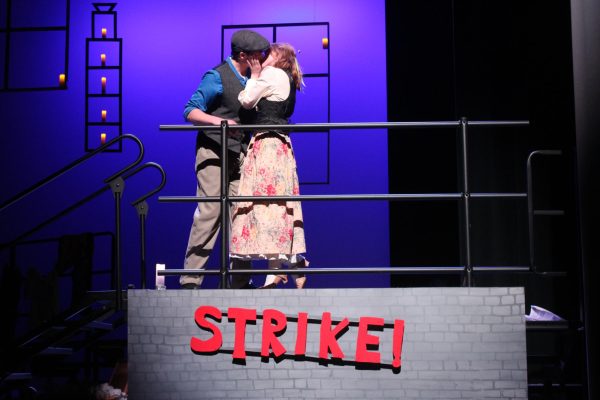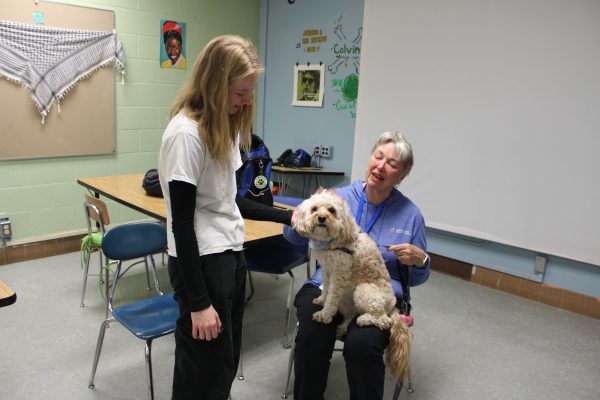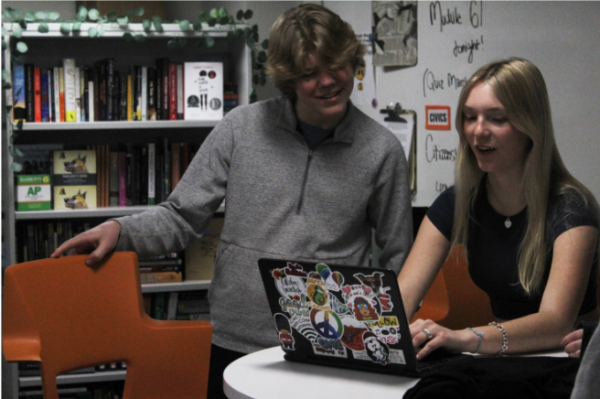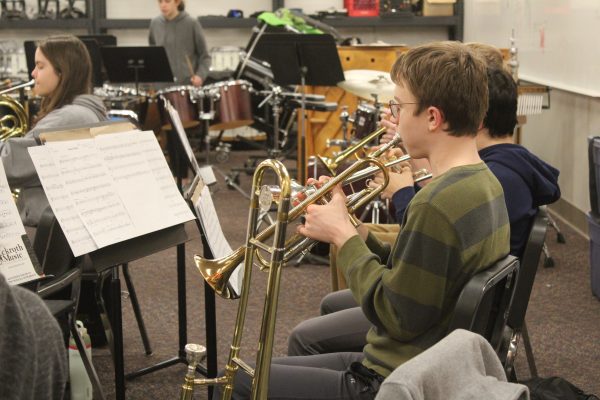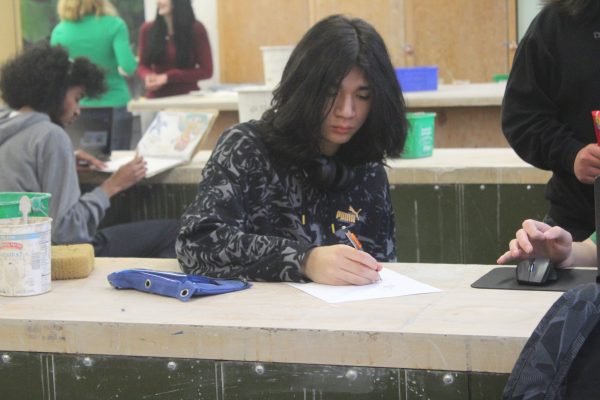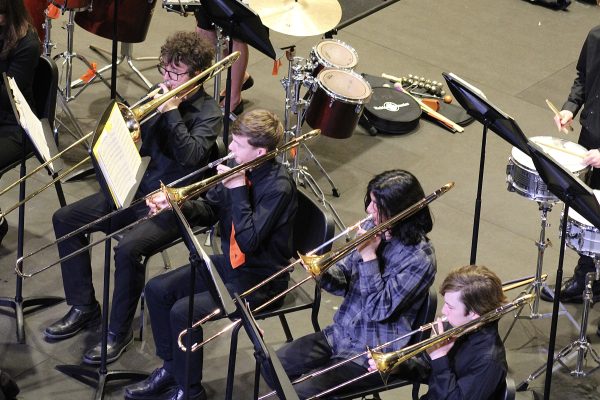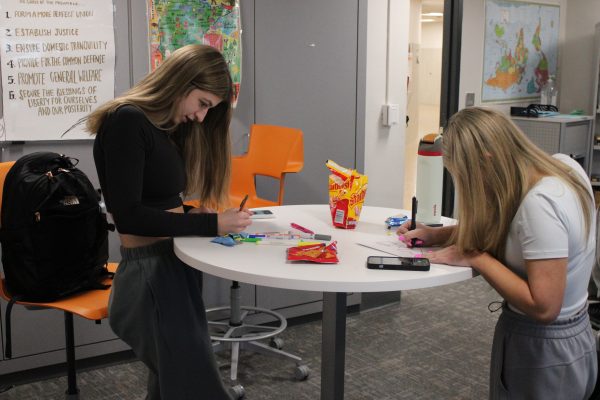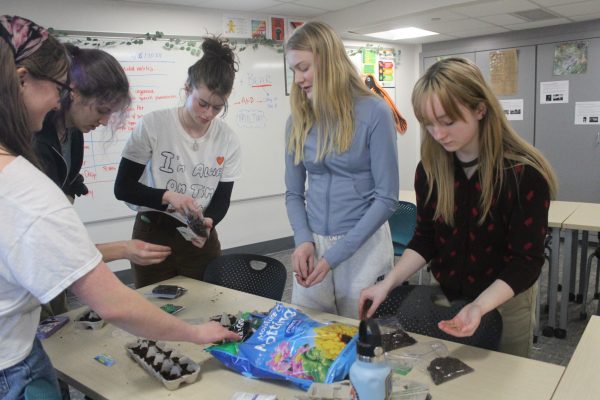SOAR kicks off year by attending community panel
Community Education Advisory Council facilitates discussion challenging racism
Juniors Izzy Kanne and Zoe Younger participate in a community discussion led by the Community Education Advisory Council Oct. 11 at the Rec Center. As members of SOAR, they attended this event to discuss racial issues in St. Louis Park.
October 13, 2018
As a member of the Students Organized Against Racism club, junior Amaya Fokuo said she was impressed by the community discussion held at the Rec Center Oct. 11, as it brought awareness to important racial issues.
“Last night we learned a lot about microaggressions, which was really interesting,” Fokuo said. “I also got to talk to people about their experiences with their race and how others have handled racist situations.”
According Lisa Greene, the Community Education Director for St. Louis Park Public Schools, the city partnered with the Community Education Advisory Council (CEAC) to create a safe space to moderate difficult conversations about racism.
“This is a community education advisory council event, a Heart of the Matter community discussion, talking about racism, and my role is that I convene the CEAC, and I partner with the city of St. Louis Park to put this together,” Greene said.
According to Alicia Sojourner, racial equity coordinator for the city of St. Louis Park and facilitator at the CEAC panel, Minnesota culture often perpetuates racism through passiveness.
“We know that a ride in call-out culture has been going on, and often within the lense of people who think saying racist, homophobic, sexist things are okay,” Sojourner said. “As Minnesotans we have to ask ourselves how do we work through that, how do we combat, how do we interrupt those injustices, especially individuals who have been taught to avoid conflict.”
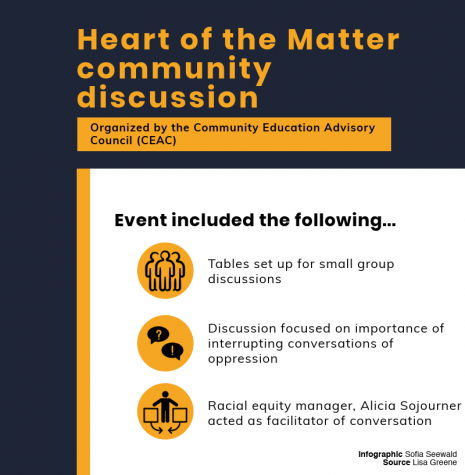 Fokuo said attending events similar to the CEAC panel gives Students Organized Against Racism (SOAR) ideas for discussions they will lead in the future.
Fokuo said attending events similar to the CEAC panel gives Students Organized Against Racism (SOAR) ideas for discussions they will lead in the future.
“It gives us an idea of how other people run their talks on racism and how we could take some of their set-up to make our own set-up when we do our own talks on racism,” Fokuo said.
Sojourner said the conversation was aimed at helping people develop skills to challenge racism, especially indirect microaggressions.
“It is very important that we help people learn skills and tools to challenge racism, which was our main focus, but those skills and tools can be used for any type of oppression, and (these) skills and tools challenge oppression, both when it’s very overt in your face and then some of those under the surface microaggressions that happen within our Minnesota culture often.”
Fokuo said her goal is to learn from future SOAR discussions in addition to being able to detect covert racism.
“I hope to learn to be more cautious about race for myself and just to recognize situations where I’m being taken advantage of,” Fokuo said. “Sometimes I don’t even realize and I want to help others realize this too.”
Sojourner said she believes it is important that the voices of youth are heard, since they are often the force of change in our country.
“I think every single major American movement in our history has been students and young adults leading that charge. It is extremely important that they are able to amplify their voice in a way that will create change as well,” Sojourner said. “I heard afterwards a number of adults say ‘wow their input was great’. It was real, it was raw and it was very truthful.”
According to Greene, the CEAC will be holding other similar discussions throughout the year.
“On February 7 we are doing a Heart of the Matter community discussion on food insecurity in St. Louis Park and this is open to anybody,” Greene said.



